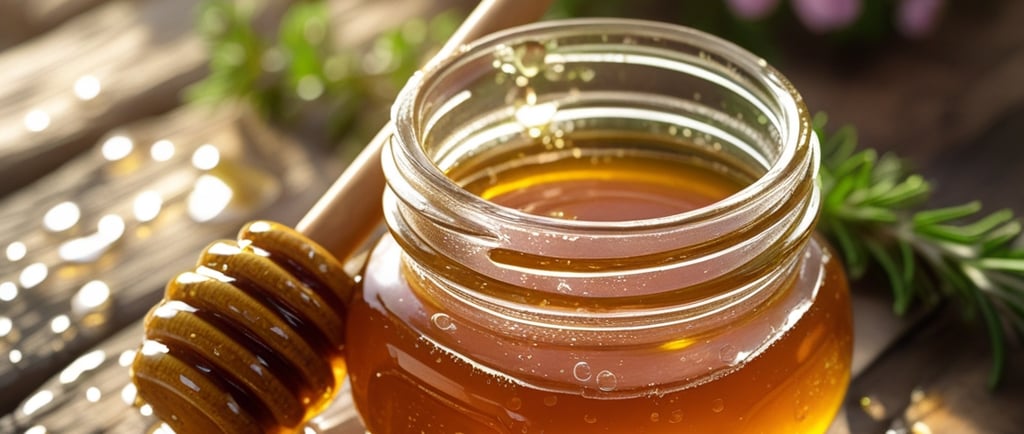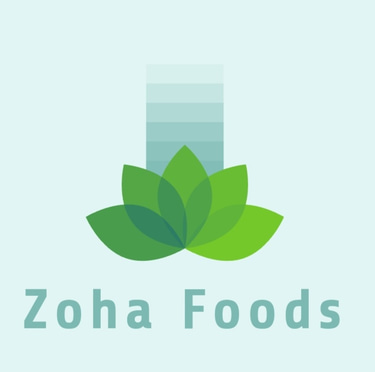What Makes Organic Honey Different from Regular Honey | Raw Honey Nutrition Facts | (2025 Guide)
Discover the real difference between organic honey and regular honey in 2025. Learn about certification, nutrition, sustainability, raw honey nutrition facts, and tips to buy authentic honey.
HONEY
Zia Khan
9/2/20254 min read


Honey has been cherished for centuries as both a natural sweetener and a healing food. In 2025, the global demand for organic honey continues to rise as more consumers seek healthier, chemical-free alternatives. But what truly makes organic honey different from regular honey? Understanding the distinctions between the two can help you make informed choices for your health, environment, and overall lifestyle.
In this guide, we’ll break down the production process, nutritional value, certification standards, and health benefits of organic honey compared to regular honey. We’ll also address common myths, legal labeling requirements, and consumer FAQs.
👉 If you haven’t already, you may also want to check our earlier guide: Organic Honey Benefits – Complete 2025 Guide.
What Is Organic Honey?
Organic honey is produced under strict conditions where bees gather nectar from flowers grown without synthetic pesticides, herbicides, or genetically modified organisms (GMOs). Beekeepers must also ensure that:
Hives are located far from industrial zones or chemically treated crops.
Bees are not given antibiotics or harmful chemical treatments.
Harvesting and processing follow organic certification standards, which vary across regions but are generally regulated by bodies like the USDA Organic Program (USDA Guidelines) or EU Organic Certification.
This ensures the honey remains as pure and natural as possible.
What Is Regular Honey?
Regular honey, also known as conventional honey, is produced without these stringent restrictions. While it still comes from bees collecting nectar, the main differences are:
Bees may feed on plants sprayed with pesticides or grown with GMOs.
Hives can be treated with antibiotics or chemical mite controls.
Processing may involve heating, pasteurization, or filtration that removes pollen and enzymes.
In some cases, regular honey is blended with corn syrup or other sweeteners to reduce production costs.
This doesn’t mean regular honey has no value, but it may lack some of the nutritional integrity and natural enzymes present in raw organic honey.
Nutritional Value of Organic Honey
Studies show that organic honey contains higher levels of antioxidants, vitamins, and minerals than processed honey. It also retains live enzymes like glucose oxidase, which contributes to antibacterial properties.
Some benefits of organic honey include:
Higher antioxidant levels – which help fight oxidative stress.
Natural antibacterial compounds – useful for wound healing.
Pollen content – may support immunity and seasonal allergy relief.
Enzymes and amino acids – supporting digestion and metabolism.
A 2024 study by the National Center for Biotechnology Information (NCBI Research) confirmed that raw organic honey preserves significantly more bioactive compounds compared to pasteurized honey.
Why Processing Matters
One of the biggest differences between organic and regular honey lies in processing.
Organic honey is usually raw or cold-filtered, meaning it maintains pollen, propolis, and beneficial enzymes.
Regular honey is often pasteurized at high temperatures, which extends shelf life but destroys enzymes and antioxidants.
Consumers looking for maximum health benefits should prioritize raw organic honey whenever possible.
Environmental and Ethical Impact
Choosing organic honey isn’t only about personal health—it’s also about the planet.
Bee Welfare: Organic standards require humane treatment of bees, reducing harmful exposure to synthetic chemicals.
Environmental Sustainability: Organic farms encourage biodiversity and soil health.
Fair Trade and Local Economy: Many organic honey producers work on smaller, sustainable farms, supporting local beekeepers.
If you want to learn more about sustainable beekeeping, the Food and Agriculture Organization (FAO) offers excellent resources (FAO Beekeeping Guide).
Labeling & Certification Standards
Not all honey labeled “organic” is truly organic. Look for trusted certification seals such as:
USDA Organic (United States)
EU Organic Certification (Europe)
Pakistan Organic Certification Council (POCC) (South Asia)
These bodies audit beekeepers to ensure compliance. Without certification, honey marketed as “organic” may just be a marketing trick.
Price Differences – Is Organic Honey Worth It?
Organic honey typically costs 20–50% more than regular honey. While the price is higher, many consumers see it as an investment in:
Better health
Cleaner environment
Sustainable farming
If budget is a concern, you can choose local raw honey from trusted farmers’ markets as a middle ground.
Common Myths About Organic Honey
Myth 1: All Raw Honey Is Organic
Not true. Raw honey may still come from bees feeding on pesticide-sprayed flowers. Organic honey must be certified chemical-free.
Myth 2: Organic Honey Never Crystallizes
Crystallization is natural and happens in all pure honey varieties, whether organic or not.
Myth 3: Organic Honey Tastes the Same as Regular Honey
Flavor depends on the floral source. Organic honey may taste richer because it retains more pollen and enzymes.
Consumer Tips for Buying Organic Honey
Always check for certification seals.
Choose raw, unprocessed honey when possible.
Buy from trusted local beekeepers to support ethical practices.
Avoid honey that looks too clear—it may have been over-filtered.
Compare labels and beware of “honey blends.”
FAQs About Organic vs Regular Honey
1. Is organic honey healthier than regular honey?
Yes. Organic honey retains more nutrients, antioxidants, and enzymes than processed honey, making it a healthier choice.
2. Can diabetics consume organic honey?
Both organic and regular honey affect blood sugar. However, organic honey may have slightly better glycemic impact due to its purity. Always consult a doctor before regular use.
3. Does organic honey expire?
Pure organic honey does not expire if stored properly. It may crystallize, but that doesn’t mean it has gone bad.
4. Why is organic honey more expensive?
Because it follows strict certification, pesticide-free farming, and sustainable beekeeping practices.
5. How do I know if my honey is fake?
Do a simple water test: real honey sinks, while adulterated honey with sugar syrups dissolves quickly.
Conclusion
The difference between organic honey and regular honey lies in how it is produced, processed, and certified. While regular honey remains widely available and affordable, organic honey offers cleaner, healthier, and more sustainable benefits.
If you’re looking to improve your diet while supporting ethical beekeeping, choosing certified organic honey is worth the investment.
